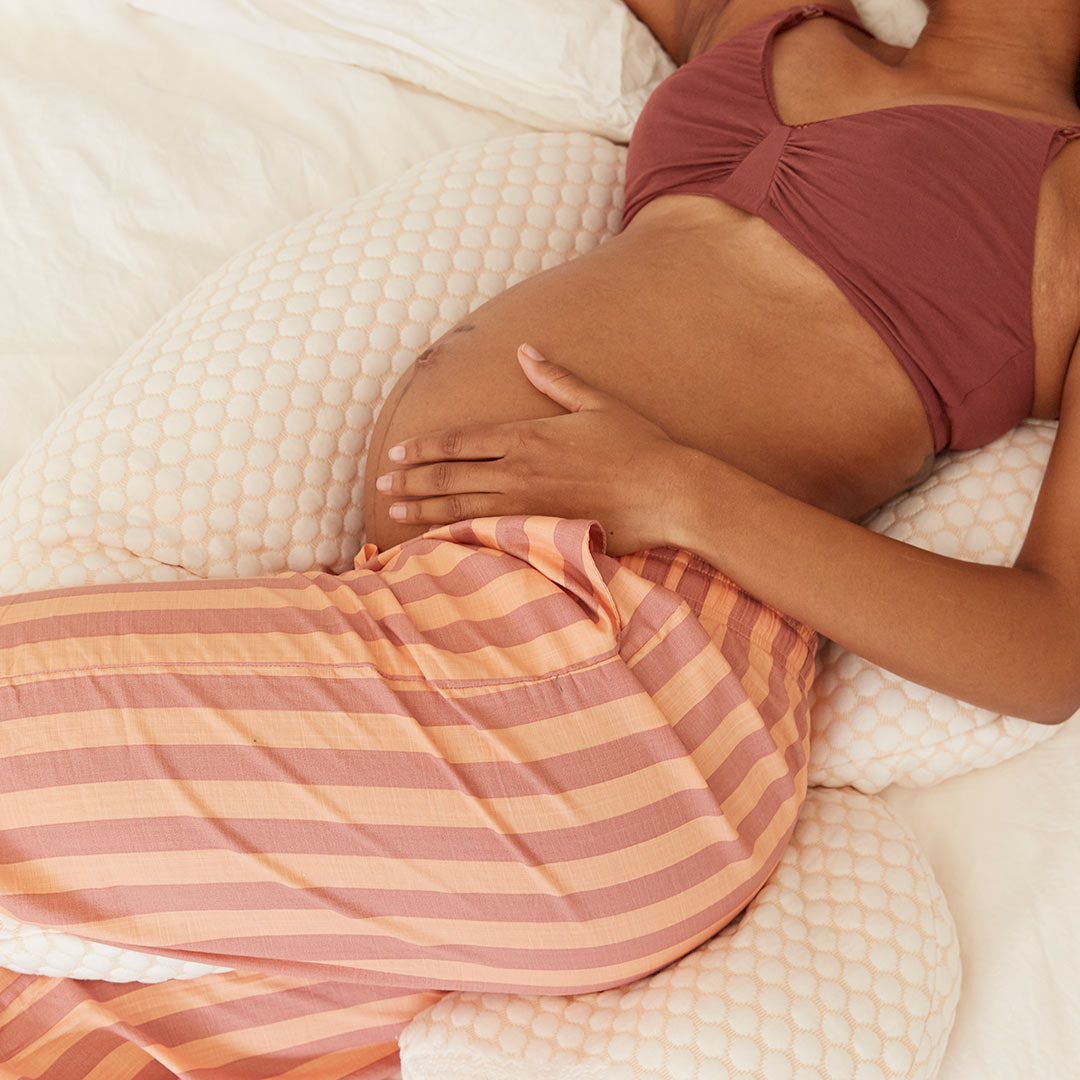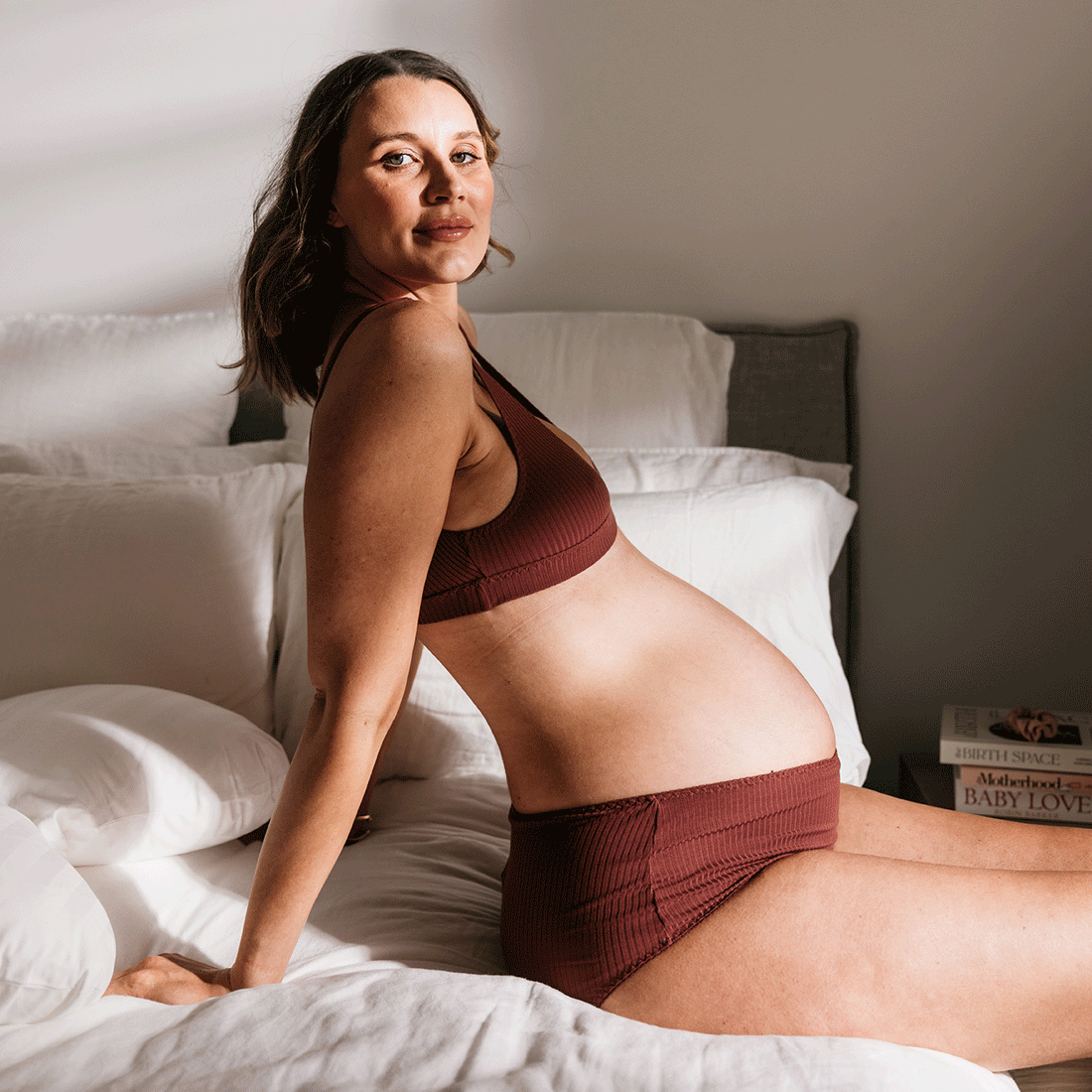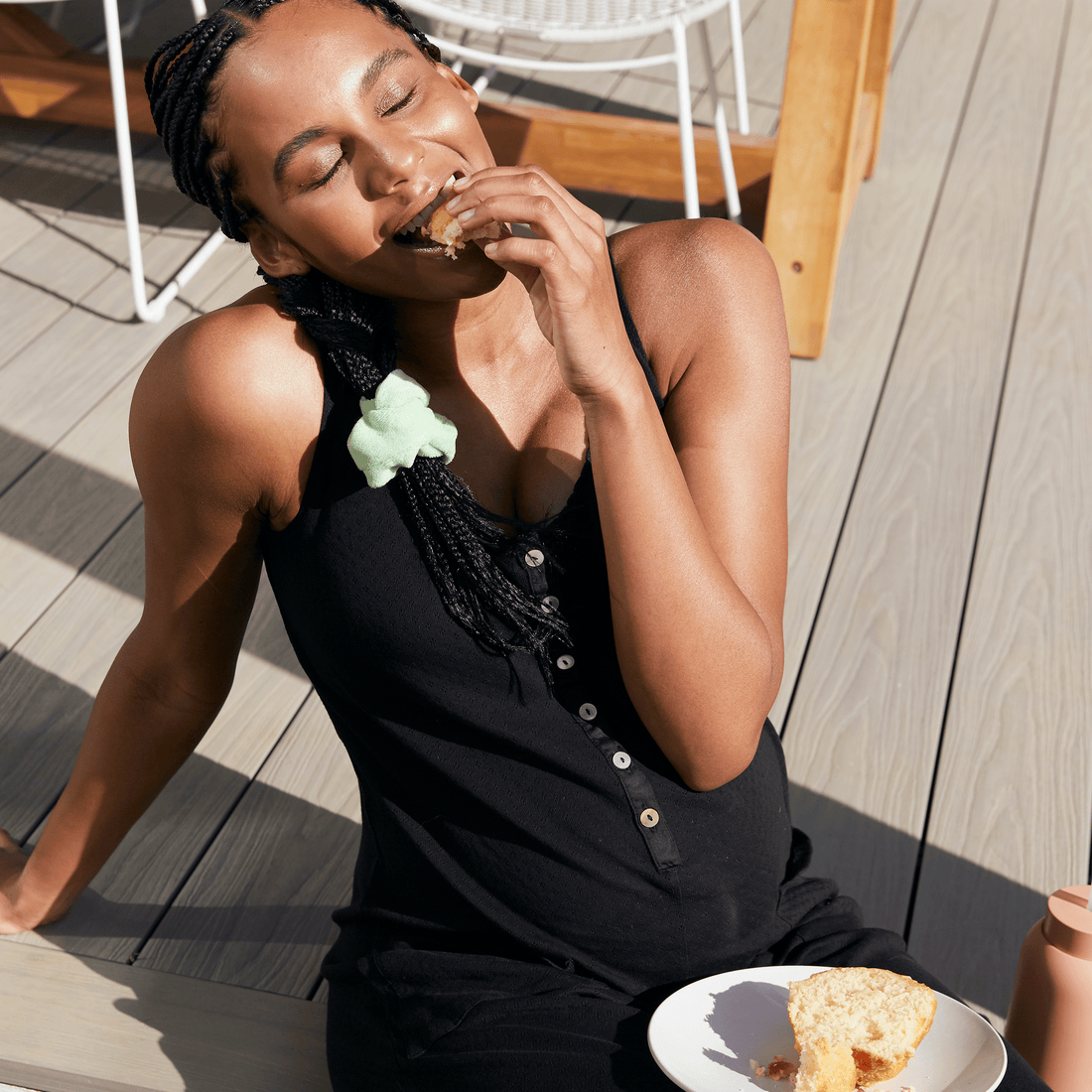But these things can help.
Pregnancy is indisputably magical — no one is denying the fact that growing and nurturing human life is pretty incredible, or the fact that our bodies literally stretch, move and contort to accommodate said tiny human. But for every blissful pinch-me moment there’s the less wondrous stuff: the morning sickness, the aches, the haemorrhoids, and perhaps the cruellest joke of them all: the crappy sleep, right before you get the least sleep of your life. But you don’t have to spend your trimesters tossing, turning and cursing, because naturally we’ve got some things that can help.
Why It's Hard to Sleep While Pregnant
But first, why does sleep go into hiding when you need it the most? Well, despite it being vital for life (and growing life) all the other things that are happening like hormonal changes, physical discomfort (back pain, reflux) or pre-baby anxiety can all contribute to sleep disturbances. There’s also other things like not being able to get comfortable or having to give up your favourite sleeping position (if you’re a back or tummy sleeper) which can add to the pain and this study which reports that over half of pregnant women report poor sleep also says that primary sleep disorders like apnea and restless legs also increase dramatically during pregnancy.
Pregnancy and Back Sleeping
One of the things you probably didn’t know before falling pregnant is that you’d be resigned to side sleeping in the later stages of pregnancy (28 weeks on) — but there’s a very good reason for this. As recently as five years ago it was identified as an (avoidable) risk factor for stillbirth. These findings have been supported by multiple international studies as MRI imaging has shown back-sleeping puts pressure on one of the veins going to the heart and can reduce blood flow significantly (80%). This in turn reduces blood flow to the uterus, placenta and foetus.
Pregnancy Insomnia
Another sleep issue for us when pregnant? Insomnia. Yep, according to the sleep foundation, around 60% of women are affected by it, and again we can point the finger at hormones and the whole aches/pains/ growing a bump thing for that little ailment. Unfortunately there’s no cure-all, but things like decreasing blue light/ screens before bed can help, as can breathing practices like yoga nidra, and meditation.
The better sleep kit
While we don’t have a magic wand to help you get — and stay — asleep, what we do have is some excellent tips and tried-and-tested products that can help you feel more comfortable.
Use a pregnancy pillow: Yes, they might look… weird, but they are a game changer for growing bellies - trust us. This one by SleepyBelly offers three levels of support: a long pillow for between the legs to support the hips and two wedges to support the bump, and to ensure you don’t roll on your back. Genius.
Finish eating 2-3 hours before bed: This is the sweet spot the Sleep Foundation says is the optimal time to minimise sleep disturbances. Eating too close to bed can trigger reflux or lead to poor quality sleep, while eating loads of carbs before bed can increase the time it takes to fall asleep.
Switch screens for paper: While hormones definitely play a part in restlessness, the importance of good sleep hygiene can’t be ignored, and the first step is turning off all screens 1-2 hours before bed. Instead, try calming your mind by reading a book, or try journaling as a mindfulness tool, to quell the anxious thoughts. Adopting this pregnancy yoga class from Amy Carmody Yoga into your pre-bed routine could also help.
Stretch your legs: Restless legs syndrome is common in pregnancy as is leg cramping. You can mitigate both of these by moving during the day with light exercise; making sure you’re getting enough calcium (one of the causes of cramping) and stretching your legs before bed. A beautiful and effective remedy to soothe your restless body is with magnesium. Pure Mama’s Body Rub is great for growing pains, with a nutrient rich, fast absorption blend of magnesium and syricalm, specifically designed for pregnancy self-massage. You could also try a spray like this one from Brillo, on sore muscles and soles of the feet.
Wear some comfortable pyjamas: Hear us out: there is nothing more irritating that itchy, uncomfortable ill-fitting PJs when you’re trying to sleep. Go for breathable fabrics to help with the hormones (pregnancy sweats are real), and a cute print because, well you want to feel good, and sometimes all you need is a happy print to do that.























